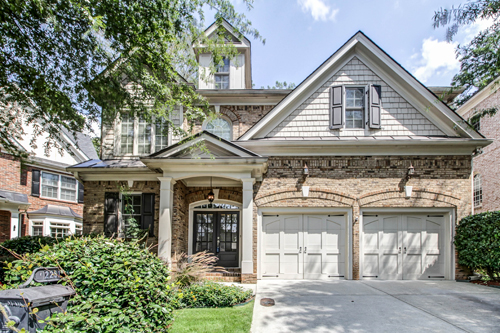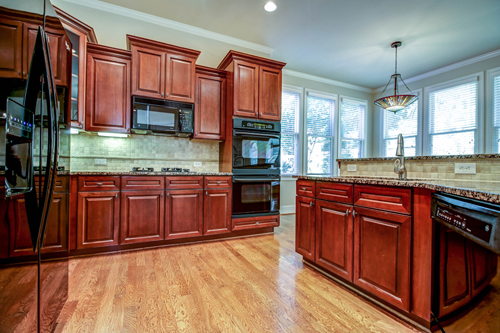
How Much Is My Home Worth
How Much Is Your Atlanta Home Really Worth?

 Figuring out “How much is my home worth?” requires understanding the difference between the emotional value of a home and the economic value of a house.
Figuring out “How much is my home worth?” requires understanding the difference between the emotional value of a home and the economic value of a house.
Home is a word full of emotions like family holiday celebrations, birthday parties, family memories, safety, and security. When we use the word house we are often discussing qualities like value,investment,and financial appreciation.
For a home owner the reality is a “home” is a “house”, and vice versa.
And, there is no problem with blurring the lines between the two until you get ready to sell your home. Once you do choose to sell, the two values can start to conflict. Then, you have to step back and start thinking of your home as a house.
Sally English offers a free Market Analysis of your homer home as part of the English Team service commitment. During the market analysis we look at the financial aspect of your house to answer the question “how much is my home worth?”.
I have met with hundreds of families who were considering the sale of their home. Many families were being forced to sell because of a job change, divorce, failing heath, or other unforeseen change in economic circumstances.
Because of the stress and anxiety attached to their situations, these families have a great need to get the highest amount possible from the sale of their home. These circumstances usually lead them to latch onto any information with a positive effect on the market value of their home. Likewise, they tend to completely ignore information that might have a negative impact on the value.
Delimma of Pricing a Home Above Predicted Market Value
Herein lays the dilemma of pricing a home above the predicted market value. Homeowners want to know with certainty they have priced their home so they get every possible dollar from the sale. While real estate agents know, with certainty, that an over-priced home will sit on the market and end up selling for less than a scenario where it had a proper “just listed” price. Both Realtors and home owners are challenged by the proposition of listing the home for an amount higher than the market analysis predicts the property will yield.
I prefer being honest and open with the sellers and ONLY make a realistic prediction of the property’s sales price. But the dilemma is an exaggerated estimate of the sales price would probably help me get the listing. I always opt for realistic prediction of sales price when answering “How much is my home worth”. In addition to the ethical issues involved for me as a Realtor, there are two good business reasons not to over valuate a home you are putting on the market
Putting an overvalued list price on the home virtually guarantees that the home will take much of longer than average to sell.
If the list price on the home is inflated, the home will eventually sell for less than the Market Analysis predicts it should have.
So, how can you predict the market value of your home? I would suggest you first consider what elements should be disregarded when predicting the market value:
- The market value of your home is not a function of what you have invested in the home. Just as the price of a share of stock fluctuates up and down every day on the New York Stock Exchange, so too does the value of your home in the local marketplace.
- It does not matter what price you paid for the home. It does not matter what you have invested in remodeling or improving the home. In the end, the marketplace determines the value of your home.
- Sadly, it is not unheard of for homes to sell for less than the sum of the purchase price plus improvements. We are seeing this over and over in the current economic cycle.
- The market value is not a function of what you need out of the house. I can’t tell you how many times people have told me that they have to price their home at a certain level because they want “x” amount of dollars from the sale of their current home to purchase a new house. Unfortunately, it just doesn’t work that way. The buyer doesn’t care how much money you need from the sale of your home and has made his decision independently of your need to purchase a replacement home.
- Likewise, the market value of your home is in no way connected to the price of homes where you are moving. Houses cost more in the Northeast and California, but this will in no way impact the price your home sells for in the Atlanta market.
- Finally, the market valuation of a home is in no way connected to the memories and experiences you have had in the home. Most homes would be priceless if this were true.
Most folks already know what factors go in to the market valuation of their home. However, when it’s time to actually think about selling, emotions have a tendency to override rational thought and block out the things we don’t want to think about.
Appraisals Have An Expiration Date
“I have an appraisal my bank did when I got a secured line of credit 5 years ago.” One common argument for overpricing a home is the existence of an appraisal that says the home is worth a certain amount of dollars. Sellers completely ignore the fact that the appraisal was done for a specific reason at a specific time and reflects the value of a home a specific point in time.
Remember: appraisals reflect the purpose for which they were initiated. If you have an appraisal from a lender, you have not been given the market price of your home; you have been given the upper limit of the lender’s willingness to loan you money. In particular, lenders were overly generous in valuing homes for the purpose of making equity lines of credit. We saw the consequences of that decision in the foreclosure market.


